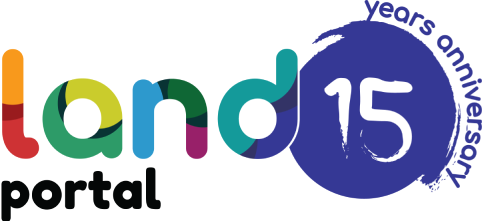Search results
Showing items 1 through 9 of 12443.-
Library ResourceJanuary, 2021France
-
Library ResourceJanuary, 2023United Kingdom
The convergence of the biodiversity and climate crises, widening of wealth inequality, and most recently the COVID-19 pandemic underscore the urgent need to mobilize change to secure sustainable futures. Centres of tropical biodiversity are a major focus of conservation efforts, delivered in predominantly site-level interventions often incorporating alternative-livelihood provision or poverty-alleviation components. Yet, a focus on site-level intervention is ill-equipped to address the disproportionate role of (often distant) wealth in biodiversity collapse.
-
Library ResourceJanuary, 2021Germany
-
Library ResourceJanuary, 2022France
A river basin – the breadbasket of millions – battered by floods just a few months earlier, slowly dries up; struck by climate change, over-abstraction of water and degradation of soils and land. As the river flow and reservoir levels fall, hydropower production declines. Farmers start to rely more heavily on groundwater, but access to energy for their irrigation wells is expensive. Many, especially women, are without access and a voice; others pump too much and ratchet up the water stress of the whole basin. Soils turn to dust, crops wilt, livestock and wildlife perish.
-
Library ResourceJanuary, 2020France
Our program-level ToC is reassessed annually to accurately reflect new information (e.g. new bilateral projects) and new understanding (e.g. of how WLE delivers outcomes and impacts). 2020 adjustments applied across WLE’s flagships (FPs) include:
◠A focus on three ‘foundational’ impact pathways: (1) transdisciplinary innovation; (2) policy
influence; (3) brokering practices and technologies and enhancing implementation capacity.
â— Encouraging WLE interventions to address both equity and sustainability. -
Library ResourceJanuary, 2022France
ClimBeR Governance 4 Resilience (Work Package 4) developed a framework to scale innovations for transformative impact. The framework has four elements: 1) Changing the narrative, 2) Deepening the analysis, 3) Strengthening the alliances, 4) The process of change: applying lessons learned. This framework is being applied to ClimBeR research on governance in Kenya, Morocco, Senegal, Guatemala and the Philippines.
-
Library ResourceJanuary, 2020Iceland
Domestication of indigenous Son tra or H’mong apple fruits has resulted in higher yields of superior, more marketable fruits while helping in soil conservation efforts in the North-West region of Vietnam. FTA supported partnerships, helped develop and scale adoption of superior son tra genotypes by smallholder farmers and government-led land restoration initiatives.
-
Library ResourceJanuary, 2021Iceland
In South Asia, the CGIAR-led innovation of bundled agricultural technologies (including index-based flood insurance, climate resilient seeds and agroclimatic services), relying on advanced tools and modeling including satellite data, speeded payouts to over 15,000 flood-affected farm households, indirectly benefitting another 125,000 farmers who learned from participating neighbors. Governments and insurance companies are beginning to scale out these new products to farmers, including women, in Bangladesh, India and Sri Lanka.
-
Library ResourceJanuary, 2020Italy
-
Library ResourceJanuary, 2020Iceland
Land Library Search
Through our robust search engine, you can search for any item of the over 64,800 highly curated resources in the Land Library.
If you would like to find an overview of what is possible, feel free to peruse the Search Guide.

